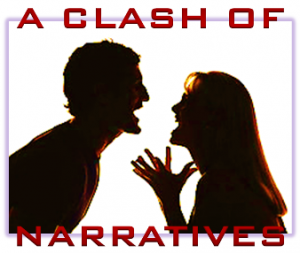 “I wish I could do what you do!”
“I wish I could do what you do!”
This is something most of us have heard from someone, at some point. Our individual gift shines through—whether it’s writing, or slam-dunking, or repairing a car, or finding the discrepancy in a financial report, or singing, or convincing a salesperson to give up a good deal—and the envious praise follows.
As a writer, however, when people tell me that they are impressed at my storytelling or wish they could do what I do, I am often amused by the glamor surrounding the construction of narratives. The irony is that writers don’t do anything other people don’t do; writers just do it consciously.
Human beings are natural story-tellers. This is why narrative appeals to the human psyche, and why story structure is so persistent—frustratingly persistent from the perspective of those who feel like art needs to constantly “break new ground” and transgress boundaries.
Whether you’re talking about Joseph Campbell, or Nigel Watts, or Blake Snyder, narrative structure persists because it is innate to human psychology.
Part of being a writer is being an observer of human nature. And, when I observe human nature, I see lots of narrative construction. Humans are writing narratives all the time: for their lovers, their bosses, their co-workers, their employees, their parents, their children, their friends.
Narratives tether observed behavior to invisible motives and cognitive factors like “Does she know about X?” and “Can he understand Y?”
My mom grounded me after I lied about where I was Friday night.
Why?
Because she hates me and doesn’t understand how important my friends are to me!
Cognition and motivation are invoked to explain manifest action. In this way, narratives explain past behavior and set expectations for future behavior. Fictional narrative construction* does the same thing.
The princess set out on a quest.
Why?
Because she learned that her father, the king, had been captured and she wanted to save him.
In fiction we talk about characters being “authentic” or “true to themselves.” This is beyond whether they are heroes or villains or morally in-between; it’s about consistency and self-coherence. Humans apply the same analysis to real people, trying to divine their character by crafting a storyline to explain observed behavior and predict behavior to come. Most of us might not recognize we’re doing this, but (good) writers recognize it.
_
NARRATIVES GONE BAD
 Unfortunately, if you’re not conscious of the process of narrative construction, you can slip away from authenticity into wish-fulfillment. Some people have scenes already fully written out before they ever even meet the other players! How many women do you know who have been planning their weddings since they were teenagers? How many guys do you know who already envision how famous and critically acclaimed their rock band is going to be?
Unfortunately, if you’re not conscious of the process of narrative construction, you can slip away from authenticity into wish-fulfillment. Some people have scenes already fully written out before they ever even meet the other players! How many women do you know who have been planning their weddings since they were teenagers? How many guys do you know who already envision how famous and critically acclaimed their rock band is going to be?
And, this artificially imposed expectation often doesn’t confine itself to just scripting out a larger narrative; it sometimes dictates dialogue too. That’s why “What do you want me to say?” is such a common expression of surrender and despair during arguments that, underneath it all, are really about a clash of poorly written narratives.
“Just give me my dialogue already!”
When the people in our lives don’t live up to these narratives, we can get flustered and create new ones, or draft implausible plot twists and secret motivations to keep the old narratives alive. It’s an explanatory instinct.
We draft narratives to cast our political enemies as villains and our political allies as heroes, to highlight the brilliance and moral backbone of our side and the depravity of those we cast in monster roles for our stories. Nearly 100 percent of public discourse and pop culture is a gigantic, heavily fictionalized vision of reality.
Human beings construct narratives. All. The. Time.
_
SO WHENCE THE AUTHOR?
So, if everyone constructs narratives, what makes writers different?
Writers, good ones, are aware that they’re writing narratives. They catch themselves doing it, and shift the fictionalizing instinct from their public and private “real-world” lives to the fictional worlds they create for their stories.
I think one of three things happens to writers who become aware of their own human instinct to construct narratives:
- They lose interest in slapping narratives on real people—out of fear, boredom, or a sort of Zen-like, Prime Directive ethical distance. Thus the classic Recluse Writer.
- They become more conscientious about how they construct narratives, and how narratives are constructed in general. These writers become the moral voices of their genres and generations, the Activist Writer.
- They apply their new-found knowledge not only in fiction, but to manage and manipulate their real-world relationships. These are the psychologically canny authors who chain-smoke lovers like Casanova, play their publishers and agents like fiddles, and provide us all of those great writer-hater quotes, like W. H. Auden’s narrative about Robert Browning: “I don’t think Robert Browning was very good in bed. His wife probably didn’t care for him very much. He snored and had fantasies about twelve-year-old girls.” They’re the talked-about Celebrity Writer.
But, to be fair, can’t you see those same three types in everyday people who construct everyday narratives with absolutely no awareness that they are acting on the basic human instinct to create stories?
So, really, there’s nothing special about what story-tellers do, just how they do it.
_
* As if “real-world” narratives were not also often entirely fictional.
